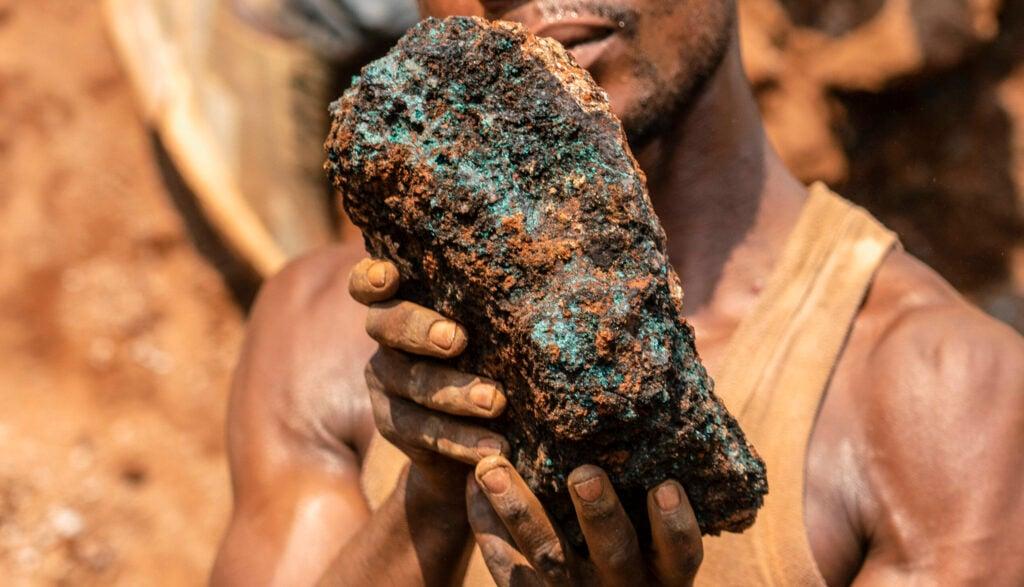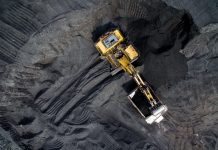Africa-Press – Lesotho. Shinkolobwe means nothing to most people, despite the fact this city of Katanga has changed the course of history. It was from a mine located near this city that the uranium for the American Manhattan atomic programme came.
At a time when the global energy transition is accelerating, Shinkolobwe, DRC, and more broadly Africa, have the opportunity to participate again in changing the world, in a peaceful way, thanks to their resources in “critical minerals”.
The “green transition” aims to replace internal-combustion-engine vehicles with electric vehicles (EV), equipped with batteries. It also aims to replace the production of carbonised energy (coal and gas power plants) with non-carbon production sources (wind and solar coupled with batteries).
This transition involves intensive use of “critical minerals”. Lithium, nickel, cobalt, manganese and graphite are crucial for producing batteries. Rare earths are essential for permanent magnets in wind turbines and EV motors.
Power grids need huge amounts of copper and aluminium. To take full advantage of this boom in demand for critical metals, Africa needs to invest in three crucial stages of the value chain.
First, develop quality mining projects to meet the increase in global demand (multiplication by 20 of the estimated demand for lithium and graphite by 2030, by 10 for cobalt, by 5 for manganese).
Second, succeed in developing local refining capacities. Third, manufacture on African soil the batteries necessary for the energy transition. On the mining upstream, many African countries have been largely endowed with minerals, some evoking a “geological scandal”.
The continent produces more than 70% of the world’s cobalt (DRC-Zambia), 60% of manganese (Gabon, South Africa), 25% of bauxite (Guinea), nearly 15% of copper (“copper belt” of the DRC-Zambia), a significant portion of graphite (Mozambique, Madagascar, Guinea).
Two emergencies exist today: Midstream, the transformation of critical minerals still largely eludes Africa, which fails to best capture the value of its natural resources.
China enjoys quasi-monopolies on the refining of a number of critical minerals: 85% of the rare earths, 70% of the world’s lithium, 84% of its nickel and 85% of its cobalt are refined and processed in China.
For local processing capacities to be established, African producing countries must also work to improve their business climate on capital-intensive industrial investments. Improved supply of stable electricity at a competitive price is a major prerequisite.
Gabon’s financing of the Grand Poubara dam (160 MW) was a major factor in the emergence of the Moanda metallurgical complex by Eramet, processing manganese on site, after more than 40 years of exporting raw ore. This project was accompanied by the establishment of a mining school to train local talent.
At the downstream stage, the holy grail for African states lies in the establishment on their territory of battery factories or at least industrial units producing the components used in the production of batteries.
A battery factory project for EVs is under study in DRC, a priori within an ad hoc special economic zone. A joint DRC-Zambia battery production project was also announced in 2022.
The ideal is for Africa to be able to master the end-to-end value chain – from battery construction to vehicles circulating on the continent (like the 3,500 electric motorcycles deployed by M-Auto in Benin and Togo).
No energy transition without critical minerals: in a context where China largely dominates the sector, from mining to end products (gigafactories of batteries in particular), and where major geopolitical tensions are appearing with the US and Europe, African countries can navigate the competition between industrialised powers, in order to make the most of their endowment in critical minerals, in terms of investment, technology transfer and job creation.
For More News And Analysis About Lesotho Follow Africa-Press






